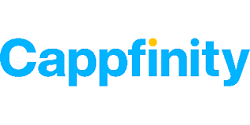Cappfinity explains the work it is doing to help prepare, upskill and level the playing field for all candidates.
There’s a wealth of research to support the fact that more diverse teams outperform more homogenous ones.
McKinsey’s landmark Diversity Matters project demonstrated that gender diverse companies are 15% more likely to outperform and ethnically diverse companies are 35% more likely to outperform the national median (Hunt et al, 2015). A separate Forbes study found that a diverse and inclusive team will make better business decisions 87% of the time (Forbes, 2018).
Yet many young applicants from underrepresented groups lack the confidence (and know-how) to apply for mainstream graduate schemes or other high-profile early career positions.
Even if they do apply, early careers managers’ report significant dropout rates between application and assessment – often due to nerves and not knowing what to expect.
Encouraging more diverse applicants
Forward-thinking universities like Manchester Metropolitan University (MMU) and several financial services multi-nationals are working with Cappfinity to bridge this gap by providing ‘candidate prep’ and ‘employability’ sessions to share the key future transversal skills employers want and shine a light on their recruitment processes.
The aim is to build candidate confidence and to draw on their wide-ranging experiences and ‘side hustles’ to demonstrate they have the skills employers are looking for in spades (even without the top grades).
Cappfinity has recently deployed an end-to-end solution aimed at making MMU students more self-aware, giving them the confidence and the language to speak about their strengths.
Students completed Cappfinity’s online ‘Strength Profile’ in Year 1, followed by a taught and assessed termly module in Year 2 on ‘Bringing your Best Self’.
The module included a ‘future skills’ panel with local and national employers; interactive workshops to help students and staff understand the eight key employability strengths most often sought by employers – and how to harness their personal strengths to demonstrate these authentically.
It ended with mock video interviews and a mock virtual assessment centre – with students taking the roles of both candidates and observers (and so learning from both sides of the experience).
800 students and 60 staff members from the university’s business school have so far taken part in the activities, with extremely encouraging feedback so far. In evaluation gathered by MMU, students rated:
- Confidence in understanding the eight key employability strengths and how to apply these in the future: 4.0/5.0
- Increased understanding of the employer recruitment process, what employers are looking for and tools employers use: 4.3/5.0
These activities will help a diverse range of students to feel recruitment ready, able to overcome imposter syndrome and have greater clarity about what to expect during the job application and assessment process.
As this work is relatively new, few academic studies exist to demonstrate the longer-term impact of these approaches. However, one early study found that guidebooks introduced at Michigan State University resulted in individuals from underrepresented groups being 6.3 times more likely to be offered university faculty positions (Smith et al., 2015).
Industry insight
As one Head of Diversity in the travel industry passionately explained:
“As an industry we need to keep innovating around the personalisation of development. I don’t think it’s an easy fix anymore, so if you’re genuinely interested in levelling out the playing field then you’re going to have to look where you find candidates, what you do with them when they actually arrive, and how you manage them through that process, otherwise you’re just going to accelerate or amplify their imposter syndrome x10.
“At the moment there is a marginalised group of people that you put a label on to say ‘weren’t talented’ or ‘weren’t able to access that talent pool’ because they didn’t have the cultural or social capital according to your measurement. Yet their distance travelled creates more powerful emotional intelligence then the academic criteria gained from going to a privileged school.”
A focus on transversal skills
It’s not only underrepresented candidates that can benefit from support in building their employability or transversal skills – with the Institute of Student Employers (ISE)’s latest Development Survey finding that just 48% of employers think graduates have the soft skills expected at the point of hiring (ISE, March 2021).
The top three missing soft skills post-pandemic were identified as: the ability to manage their career, manage upwards, and negotiate or influence those around them.
In a similar vein, Cappfinity’s meta-analysis across a range of industries found that the most commonly sought-after strengths for early career positions are drive and collaboration.
This is an ongoing trend – in earlier research McKinsey also identified a systemic disconnect between the worlds of education and employment – finding graduates are often unprepared for the demands of work because education traditionally focuses on cognitive knowledge and skills (McKinsey, 2014).
There’s clearly lots of work to be done.
If you’d like support in helping a diverse range of candidates navigate the journey to a successful early career, please contact development@cappfinity.com to find out more about our ‘Best Self’ package and Virtual Experience and Evaluation (VEE) platform, to help prepare, upskill and level the playing field for all candidates.



0 Comments